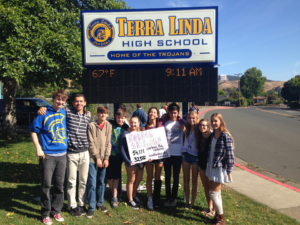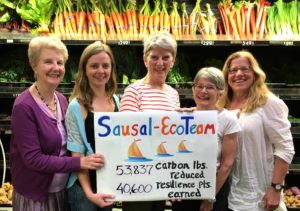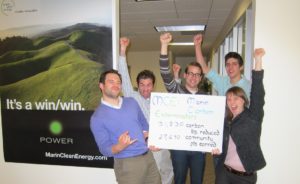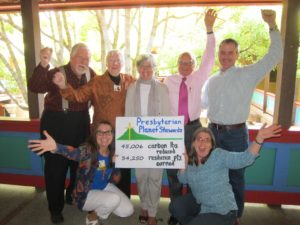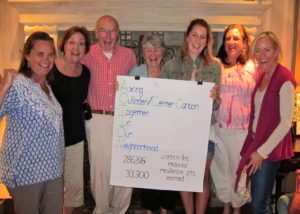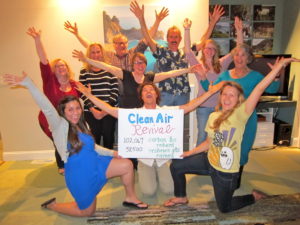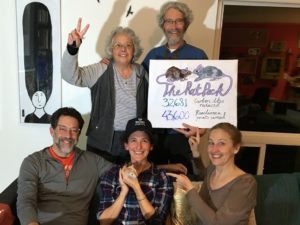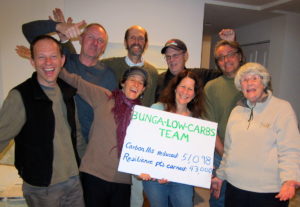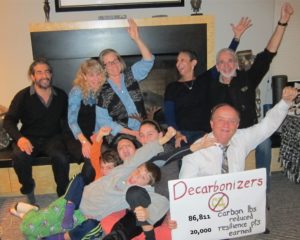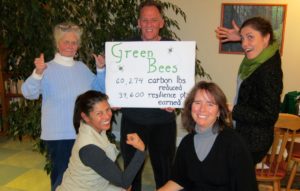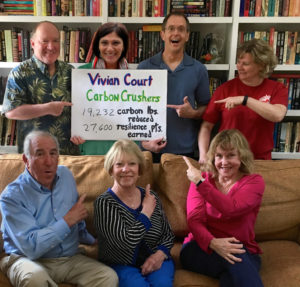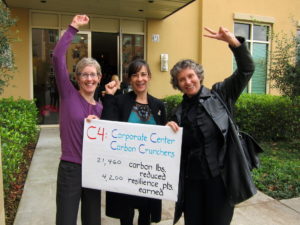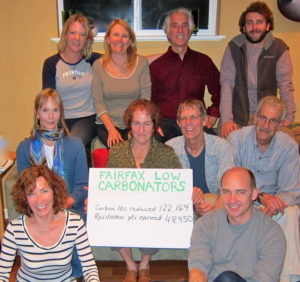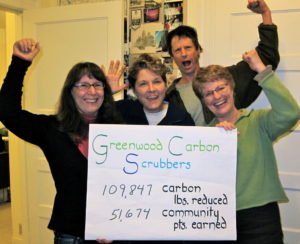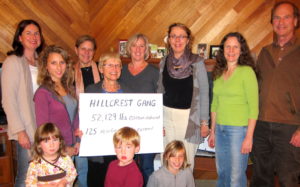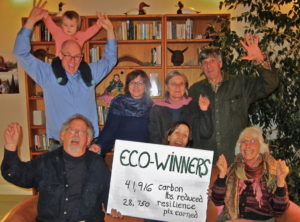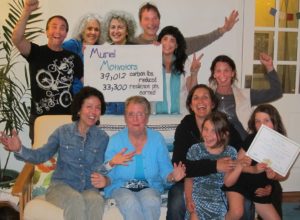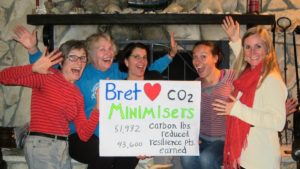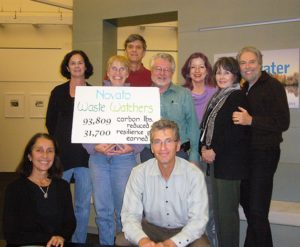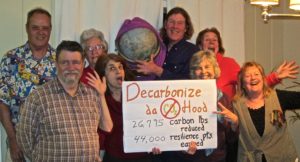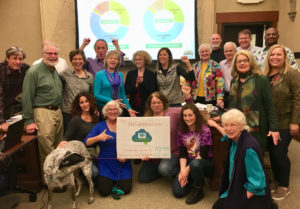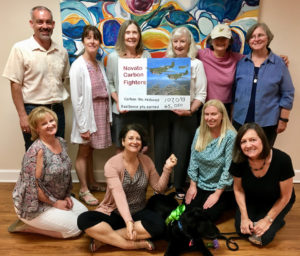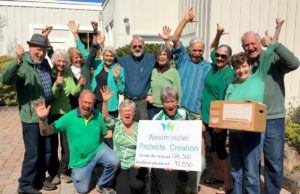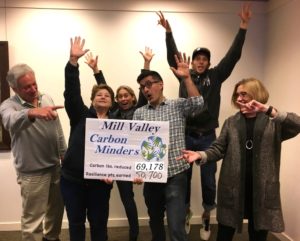County of Marin
Climate change can feel like an overwhelming problem. But most of us don’t realize that our everyday decisions contribute to climate change and by changing our actions, we can make a difference. The following LGSEC Member Spotlight showcases Resilient Neighborhoods, a program that works in Marin County to help families take climate action by reducing their own GHG emissions and building community resilience to adapt to a warming planet.

Goal:
The County of Marin has partnered with local municipalities to commit to the reduction of their residential carbon footprints through the Resilient Neighborhoods Program. Since its start in 2011, Resilient Neighborhoods has helped over 1,000 people (425 households) reduce over 5.1 million pounds of annual CO2 emissions. That is equivalent to taking 685 Marin homes off the grid. The average household CO2 reduction achieved is 30%.
The five-meeting program is free and is done by 5 – 12 households organized into a team. It’s the social dynamics of the team, taking place in a supportive and fun atmosphere that makes it successful. The bi-weekly team meetings are conducted by RN staff.
Households begin by calculating their CO2 starting emissions. Then, after learning about 100+ actions to reduce their CO2 footprint and create community resilience, they take the actions they choose. Actions cover the areas of shopping and food decisions, waste, water, transportation, home energy, emergency preparedness and building a climate movement. At the last class, team members see their actual CO2 lb. reduction and celebrate success with their team!
Progress:
Resilient Neighborhoods started with smaller neighborhood teams but to achieve economies of scale, now larger teams of people come together in public venues like community centers and libraries, places of worship, and in workplaces. To encourage more people to sign up, cities and towns partner with RN to promote the program using public outreach like community center catalogues, Nextdoor.com, newsletters, website postings and others communication channels.
This chart shows RN’s growth from 2016-2017 and some of the actions taken by households during 2017.
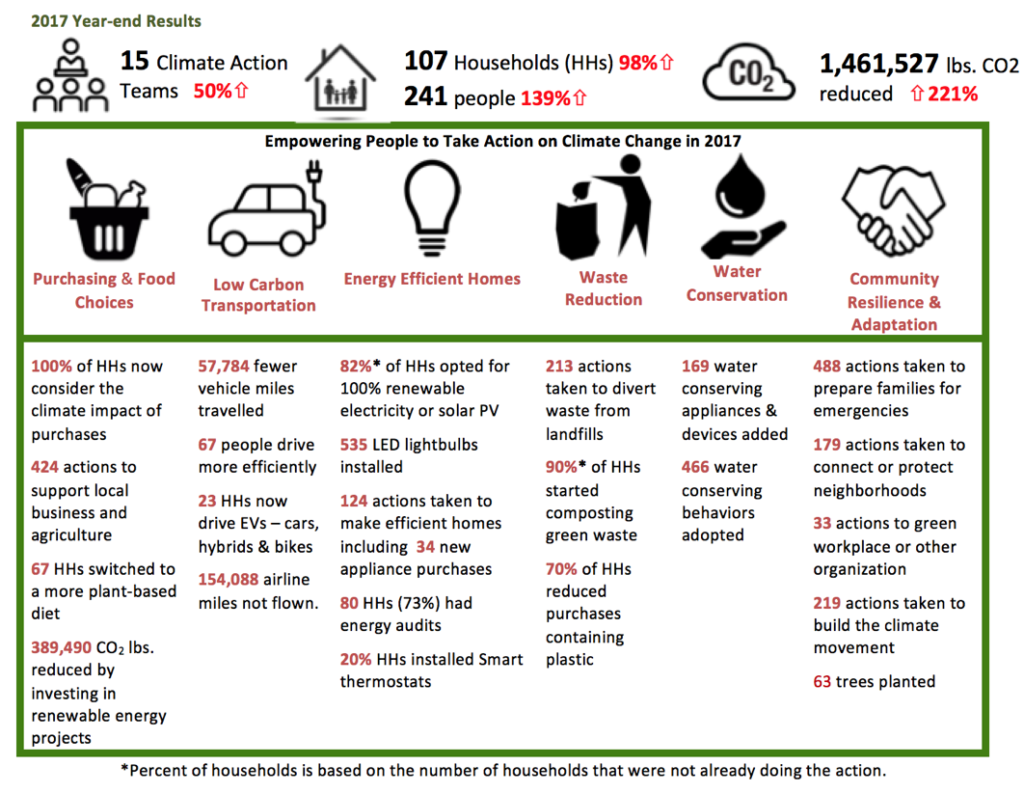
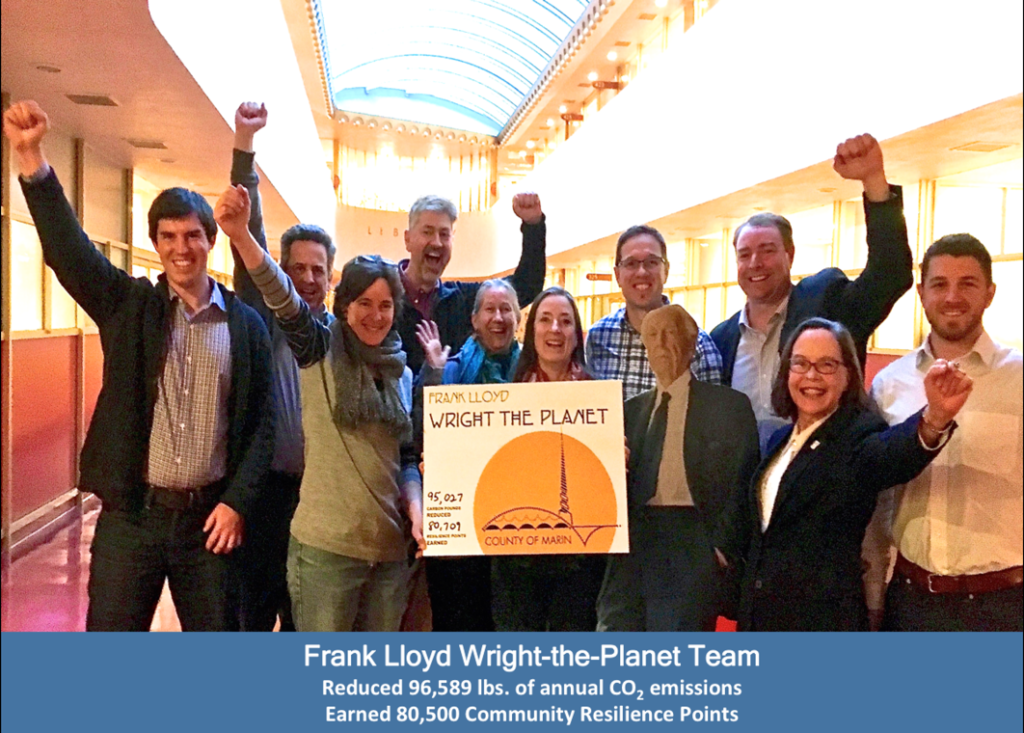
Funding:
Joining the program and attending the workshops are free, however homeowners are responsible for the cost of any carbon reduction strategies they choose to take. Most often these expenditures support the local economy and the sustainable products industry. Information about local rebate programs are provided for any participating member.
Future of the Program:
The Marin Climate and Energy Partnership (MCEP), (a collaboration of Marin’s municipalities working on GHG reduction), recognized that Resilient Neighborhoods’ work would be necessary for cities and towns to meet their climate action plan goals since 65% of Marin’s CO2 emissions come from the residents. MCEP applied for and received a $275,000 ‘CA Energy Commission Small Government Leadership Challenge’ grant to help fund RN’s efforts. The funds will help Resilient Neighborhoods expand its outreach and capacity to create teams, with a goal to reduce 1,750,000 CO2 lbs. between August 2017-August 2019.
The California Energy Commission grant also calls for a new survey of past participants to be conducted in 2019. A previous survey found that 100% of the new behaviors adopted during the program were sustained; 66% of pledged actions had been taken; and 75% of participants continued taking additional actions they had learned about in the program to move to a fossil-fuel free household. The survey showed that the Resilient Neighborhoods program has a long-term energy reduction impact. The new survey should show that the program has become even more successful.
Program Partners:
Resilient Neighborhoods has worked in partnership with: Marin Climate & Energy Partnership, City of San Rafael, California Energy Commission, City of Novato, Town of San Anselmo, Town of Fairfax, City of Mill Valley, City of Larkspur, MCE Clean Energy*, Sustainable Fairfax, Sustainable Novato, Town of Tiburon, Marin Municipal Water District, Energy Upgrade California, Sustainable San Rafael, Elders Climate Action, Zero Waste Marin, Ready Marin, Community Emergency Response Team of Marin County, City of Sausalito, City of Belvedere, Novato Sanitary District, Town of Ross, Town of Corte Madera, and Cool the Earth.
*LGSEC member

